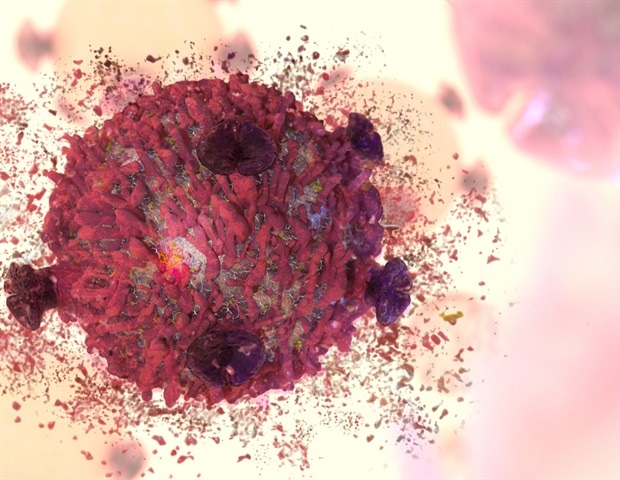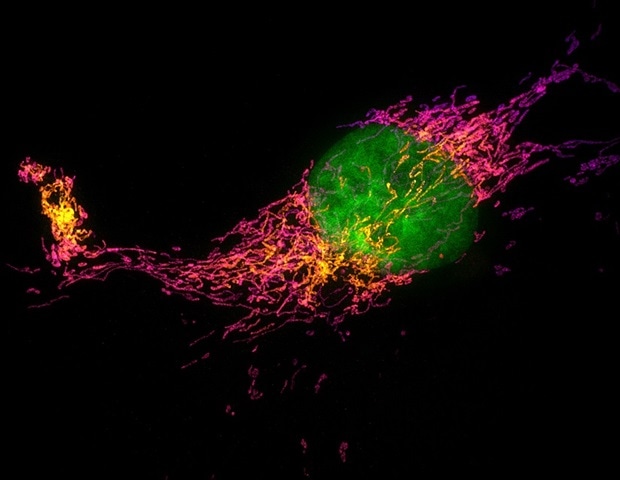
A new study has uncovered an unexpected way cancer cells can escape the immune system, making it harder for treatments to work. The study, published in Cancer Cell , explains how a type of cancer cell death can actually make tumors grow faster by turning off the immune system's ability to fight the cancer. Researchers at Moffitt Cancer Center focused on a form of cell death called necroptosis.
Previously thought to help the immune system fight cancer, researchers found that when cancer cells die in this way, they can release a molecule called interleukin-1α. This molecule helps create an environment in the tumor that weakens the immune response, preventing T cells from attacking the cancer. "We thought necroptosis would help the immune system fight cancer, but instead, it seems to make things worse by helping tumors grow," said Brian Ruffell, Ph.

D., associate member in the Immuno-Oncology Program at Moffitt and lead author of the study. Our study shows that interleukin-1α is key to this process, and by blocking it, we might be able to help the immune system do its job.
" Brian Ruffell, H. Lee Moffitt Cancer Center & Research Institute The study also found that interleukin-1α is released by cancer cells responding to chemotherapy, which could explain why some treatments don't work as well as expected. But there's good news: By blocking interleukin-1α, researchers were able to improve the immune response and make cancer treatments like chemotherapy and immunotherapy more effective in animal models.
"By blocking the actions of interleukin-1α, we could make current cancer treatments more successful," said Ruffell. "Additionally, targeting interleukin-1α can reduce the toxicity associated with chemotherapy, meaning this approach could help patients respond to and better tolerate therapy." Researchers also discovered that lower levels of interleukin-1α are linked to better outcomes, especially in patients treated with chemotherapy.
This suggests that interleukin-1α could be used as a marker to predict how well cancer treatments might work for different patients. H. Lee Moffitt Cancer Center & Research Institute Hänggi, K.
, et al . (2024) Interleukin-1α release during necrotic-like cell death generates myeloid-driven immunosuppression that restricts anti-tumor immunity. Cancer Cell .
doi.org/10.1016/j.
ccell.2024.10.
014 ..














